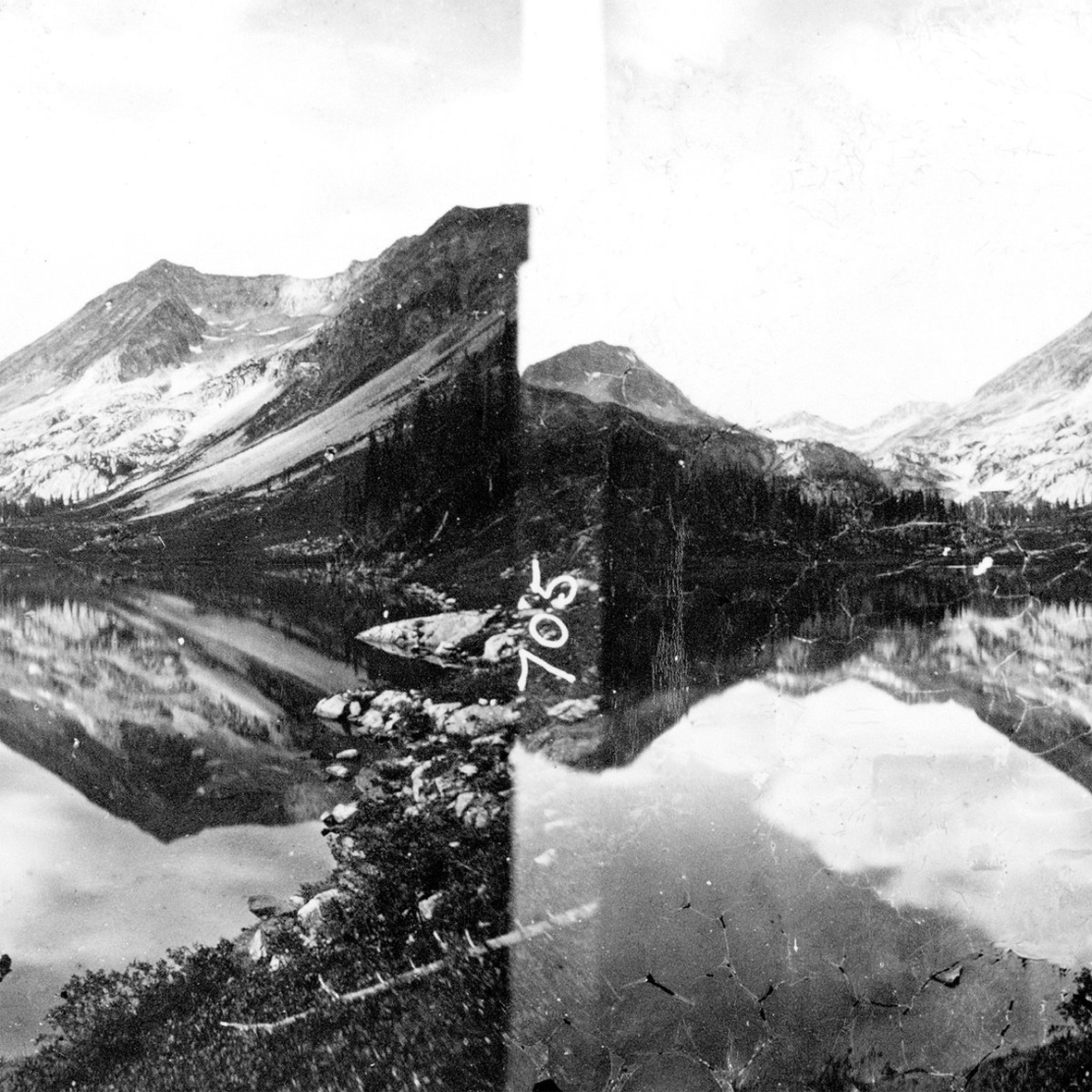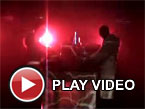Kassel Jaeger/Stephen Mathieu/Akira Rabelais, "Zauberberg"
 In recent years, Shelter Press has carved out an unusual niche for itself through a series of highly conceptual and ambitiously esoteric releases that blur the boundaries between various forms of art.  One of their more intriguing projects as of late is this one, in which a trio of composers attempts to recreate the aura of Thomas Mann's 1924 masterwork The Magic Mountain (even going so far as to do some field recording in Swiss Alps where the novel was set).  The end result is quite a pleasant and subtly phantasmagoric reverie, as the composers' individual voices are subsumed by a beguiling series of crackling classical music snippets, ominous drones, and ambient outdoor sounds.
In recent years, Shelter Press has carved out an unusual niche for itself through a series of highly conceptual and ambitiously esoteric releases that blur the boundaries between various forms of art.  One of their more intriguing projects as of late is this one, in which a trio of composers attempts to recreate the aura of Thomas Mann's 1924 masterwork The Magic Mountain (even going so far as to do some field recording in Swiss Alps where the novel was set).  The end result is quite a pleasant and subtly phantasmagoric reverie, as the composers' individual voices are subsumed by a beguiling series of crackling classical music snippets, ominous drones, and ambient outdoor sounds.
It has been more than a decade since I last read The Magic Mountain, so any attempt on my part to try to link Zauberberg to any specific passages would be hopelessly doomed.  Thankfully, I do not think that there are many links to be found anyway, as the composers seem to have very much gone for abstract mood and feel rather than anything concrete or literal.  The foundation of that aesthetic here seems to be recurring interludes of blurred, reverberant classical music snatches, which is both temporally appropriate and very effective at evoking the beauty, sadness, mystery, and isolation of a sanatorium nestled in the mountains.  Curiously, however, none of the participants' signature aesthetics surface much at all, which I suppose makes this a successful collaboration in at least one way.  I am not particularly familiar with Rabelais' previous work, regrettably, but the only conspicuous shades of Jaeger and Mathieu throughout Zauberberg are occasional intrusions of ominous electronic throbs and drones.  Those touches create an interesting tension with the rest of the album, as it see-saws back and forth between crackling, pulsing abstract menace and lively, organic sounds like chirping birds and opera records.  In many superficial ways, Zauberberg is a lot like a Caretaker album with some birds and pleasantly babbling brooks thrown in.
Compositionally, however, Zauberberg is very much its own entity, as it is kind of a slow-motion flow of dream-like vignettes that bubble up and dissipate for almost an hour (the album is just a single long-form piece).  I have mixed feelings about that structure, as it feels quite amorphous and the classical music samples seem to do most of the heavy lifting.  That latter part is probably not intentional, but I am sure that the shapeless, drifting structure was very much by design.  Such an aesthetic has some inherent shortcomings, however–most notably, there is little on Zauberberg that stands out as particularly memorable or inspired besides the many classical music samples.  Nevertheless, it works quite well as literal "ambient' music, softening the edges of reality and imbuing my otherwise mundane surroundings with a pleasant atmosphere of hallucinatory melancholy.  If that was all Zauberberg offered, however, it could easily be replaced by simply opening my windows and quietly playing "Swan Lake" with a lot of reverb added.  Fortunately, the final third of the album gets quite a bit more compelling and justifies the album's existence, as murky, haunted-sounding drones unexpectedly give way to much more aggressively processed classical music snippets.  That textural change is very effective, as the piece suddenly feels more grainy, hissing and present.  Even more effective is the ambiguous closing finale of distantly booming and popping fireworks (or possibly World War I) and the final chilling and ghostly howls as the piece fades away.
Notably, I have listened to this album at least a dozen times now and I am still having difficulty forming a solid opinion, as there are different facets pulling me in different directions.  I certainly wanted to like Zauberberg more than I do, as it has a great premise that seems tailor-made for my personal delight and I have enjoyed much previous work from both Mathieu and Jaeger.  Also, I loved the hazy sadness that pervades the many classical music interludes: whoever was tasked with manipulating their textures did an impressively effective job.  More significantly, the final few minutes are absolutely beautiful–the trio pulled quite a wonderful rabbit out of their collective hat with that crescendo of sad fireworks.  Unfortunately, however, Zauberberg is just too diffuse to offer a satisfying arc, as any sense of momentum dissipates into frequent lulls and moments of seeming barely there at all.  Also, the combined powers of three talented experimental musicians should not result in me thinking mostly about Tchaikovsky instead.  It is as if Jaeger, Mathieu, and Rabelais had nearly everything in place for an absolutely perfect and sublime album except for just one or two very crucial elements.  As such, Zauberberg is ultimately a good (or even very good) album that shows exasperating flashes of what could have been a masterpiece.  I suspect many other people will appreciate it more than I did though, as my perception was unavoidably colored by my (perhaps unreasonably) high expectations.
 



